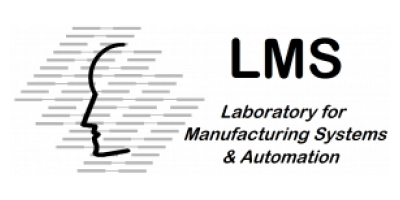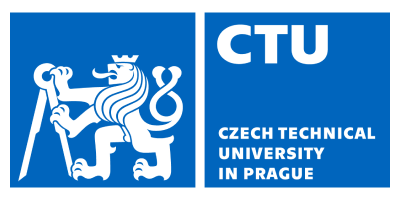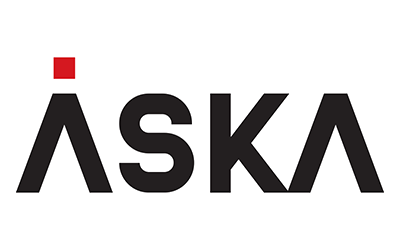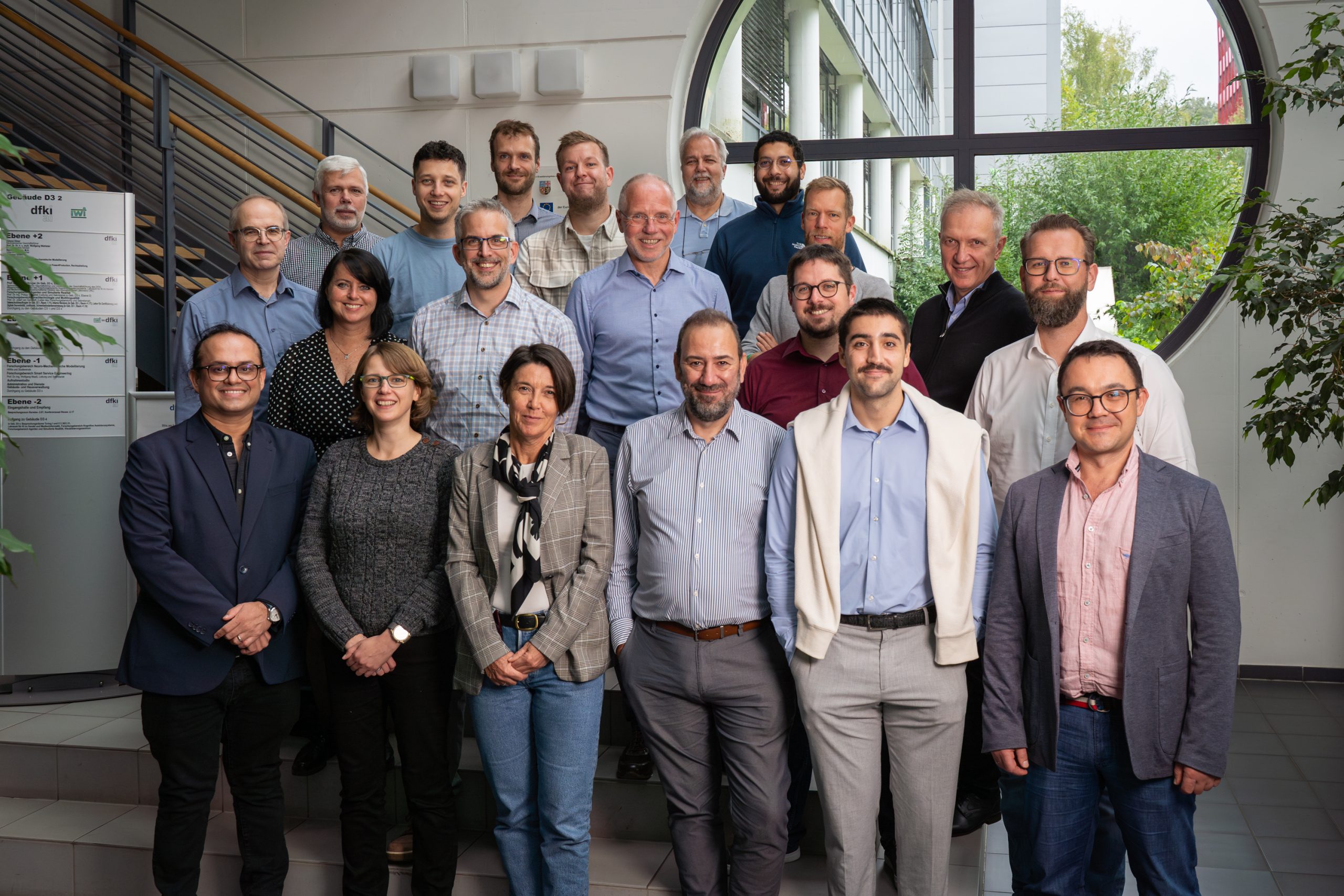
Partners
The RAASCEMAN project brings together nine project partners – research institutions and industrial partners – in six countries and is supported by the European Commission with a total of €4.6 million over the next three years.
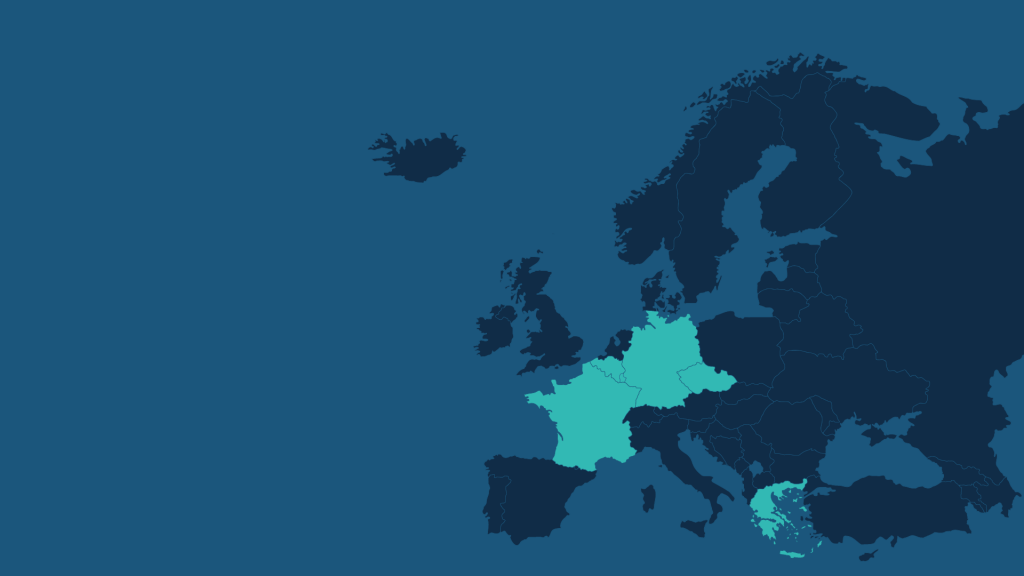
DFKI Deutsches Forschungszentrum für Künstliche Intelligenz German Research Center for Artificial Intelligence www.dfki.de Germany | DFKI conducts research on “human-centric AI” in the major groundbreaking areas of AI research and applications with a focus on socially relevant topics and scientific excellence. As the largest, independent AI research center worldwide, DFKI initiates, realizes and supports many activities to develop reliable and trustworthy AI and secure a leading role for Germany and Europe in the international competition. Based on application oriented basic research, the DFKI develops product functions, prototypes and patentable solutions in the field of information and communication technology. Research and development projects are conducted in 27 research departments, ten competence centers and eight living labs. |
| Role in RAASCEMAN | In RAASCEMAN, two DFKI’s departments are involved: DFKI-IFS Innovative Factory Systems IFS, and DFKI-COS Cognitive Assistants. DFKI-IFS closely collaborates with SmartFactoryKL in Kaiserslautern and RPTU. DFKI focusses on trustworthiness and reliability in MaaS networks resulting in an audit tool for dynamic supply chain generation and planning and scheduling for optimal production capacity exploitation. DFKI also coordinates the project and takes care of open science practices and gender aspects in research and innovation. |
RAASCEMAN coordinator Achim Wagner Deputy head of the Innovative Factory Systems research department, DFKI Kaiserslautern | “The capabilities and benefits of the RAASCEMAN technology will be demonstrated in our network of partner testbeds. This will better explain the use of the technology on both a technical and economic level and facilitate its transfer into real industrial environments. The vertical integration of software systems and artificial intelligence is particularly promising – from variable product definition and flexible parameterization and control of machines to resilient supply networks and factory optimization.” |
Flanders Make www.flandersmake.be Belgium | Flanders Make is a research & technology organisation (RTO) for manufacturing industry in Flanders, with 950 staff workers (payroll + universities). Flanders Make is the strategic research centre for the manufacturing industry. It offers active support to companies in the manufacturing industry to develop and optimise their products and production processes. It focuses on essential market trends, such as:Smart, interconnected products & production systems Agile, resilient, people-centric manufacturing organisations Customised products at the price of serial production Sustainable products and production systems |
| Role in RAASCEMAN | Flanders Make focusses on decision support for companies in a dynamic MaaS network. For that, its team will contribute to Research of MaaS and sustainability software architectures, create demonstrators in MaaS network, and leverage technology uptake by ÅSKA Bikes. |
Bart Meyers Senior Research Engineer Digital Transformation, Flanders Make | “The RAASCEMAN project is of strategic importance for Flanders Make as we believe manufacturing-as-a-service will become more and more the norm. Many small and innovative engineering companies that emerge today are able to engineer excellent products, but they want to outsource (part of) the manufacturing of their products. The outcome of the project is an important step towards de-risking the outsourcing of manufacturing, by enabling companies to more quickly set up supply alternatives.” |
LMS Patras Laboratory for Manufacturing Systems & Automation University of Patras lms.mech.upatras.gr Greece | LMS is oriented on research and development in cutting edge scientific and technological fields. LMS is involved in numerous research projects funded by the CEU and EU industrial partners, with more than 180 R&D Projects, organized 10 International conference, and published more than 800 Scientific articles. Fields of Research & Development: – Manufacturing Processes – Robots, Automation and Virtual Reality – Manufacturing Systems – Formula Student |
| Role in RAASCEMAN | LMS will focus on delivering an impact prediction tool for modelling supply chain and production uncertainties, and deliver an instructive-based operator support under dynamic manufacturing environments. LMS is also the WP3 leader coordinating the delivery of supply chain level support tools on the MaaS ecosystem. |
Kosmas Alexopoulos Research Engineer, Laboratory for Manufacturing Systems and Automation (LMS), Department of Mechanical Engineering and Aeronautics, University of Patras | “Our ambition for this project is that new innovative ideas and technologies will be shaped into sustainable production-ready solutions, aiming to improve the resiliency of European manufacturing value chains.” |
CEA Commissariat à l’énergie atomique et aux énergies alternatives French Alternative Energies and Atomic Energy Commission www.cea.fr France | The CEA is a French government-funded technological research organisation in four main areas: low-carbon energies (nuclear and renewable), defense and national security, information and digital technologies, and technology for medicine of the future. In the project, CEA is represented in particular by CEA LIST – Laboratory for Integration of Systems and Technolog and Software & Systems Engineering Department (DILS) .DILS is involved in several R&I projects in Europe and France in the fields of Smart Automation (I4.0/I5.0), HealthCare, Smart Cities, Energy. CEA labs are active in (academic) research related to Eco-Innovation, Circularity and Sustainability. |
| Role in RAASCEMAN | CEA focusses on models for digital twins of products and supply chain. In RAASCEMAN, CEA is WP leader for WP2 (Data models and data exchange infrastructure), Task leader for Task 2.2 focusing on Product digital twin (PDT), and a contributor to tasks in WP3 with a strong focus on uncertainty management. |
Kunal Suri Computer Scientist, CEA France | “The RAASCEMAN project aligns with CEA’s vision to enhance the resilience of European manufacturing organizations by leveraging Manufacturing-as-a-Service (MaaS) and advanced digital technologies such as Asset Administration Shell (AAS), Digital Twins, and Product Passports. At CEA, we look forward to collaborating with our consortium partners over the next three years to develop the RAASCEMAN solutions that will support Europe’s vision for sustainable and resilient value chains.” |
CIIRC CTU Czech Institute of Informatics, Robotics and Cybernetics Czech Technical University in Prague www.ciirc.cvut.cz Czech Republic | CTU is one of the largest and oldest technical universities in Europe. Over 19,000 students study at eight CTU faculties. With more than 1,700 scientific and academic employees, CTU is actively involved in research and scientific activities. In the project, teams of the Czech Institute of Informatics, Robotics, and Cybernetics (CIIRC) contribute to its implementation. CIIRC CTU focuses on cutting-edge fundamental and applied research in diverse fields of computer science and artificial intelligence (AI), tackling key areas of manufacturing, energetics, smart cities, and a healthy society. CIIRC CTU builds a unique ecosystem for AI and advanced manufacturing. Through its involvement in RICAIP, CIIRC CTU provides state-of-the-art research infrastructure and expertise for services supporting the digital transformation of SMEs and test before invest of industrial applications – RICAIP Testbed Prague. |
| Role in RAASCEMAN | CIIRC CTU will significantly contribute to all WPs. Main activities will be focused on Factory-level support tools and the development of the Automotive Use-Case in collaboration with Continental and Interconnected Pilot Line Use-Case through simulations of various scenarios in supply chains, especially in the area of flexible assembly and disassembly on fully automatic robotic lines. CIIRC CTU is leading WP6 Exploitation, dissemination, and communication and will coordinate especially communication and dissemination activities. |
Pavel Burget Director of the RICAIP Testbed Prague CIIRC CTU in Prague | “RAASCEMAN allows us to extend the concept of distributed production and manufacturing as a service built in RICAIP to a network of additional manufacturing service providers. RAASCEMAN not only relies on connecting testbeds but includes also industrial partners such as Continental and ÅSKA Bikes to validate the concept in true real-life environment.” |
RPTU Rheinland-Pfälzische Technische Universität Kaiserslautern-Landau University of Kaiserslautern-Landau rptu.de Germany | The University of Kaiserslautern-Landau (German: Rheinland-Pfälzische Technische Universität Kaiserslautern-Landau, also known as RPTU) is a public research university in Kaiserslautern and Landau in der Pfalz, Germany. The university was formed by the merger of the Technical University of Kaiserslautern and the Landau campus of the University of Koblenz and Landau in January 2023. Mainly team of Department of Mechanical and Process Engineering, Chair for Machine Tools and Control Systems (WSKL) will be involved. WSKL at the RPTU campus Kaiserslautern deals with the establishment of new fields of application for machining with industrial robots. |
| Role in RAASCEMAN | RPTU focusses on the implementation of a capability-service-skill model and the dynamic execution of tasks on the shopfloor. RPTU team will create demonstration descriptions and define relevant KPIs and evaluation methods with industrial partners. It will contribute expertise on software architecture and necessary specifications like RAMI4.0., and derive skills, capabilities, and services from historical data. It will focus on development of the Product Digital Twin (PDT) and equipping the cobot demonstrator with assembly and disassembly services (build OPC UA server). (WP4.3). The main contribution lays in the implementation and testing of developed RAASCEMAN technology at RPTU testbed on use-case 1 & 2. Moreover, the team will promote the standardization of developed AAS and EDC through IDTA. |
Tatjana Legler Deputy Head of Chair of Machine Tools and Control Systems, University of Kaiserslautern-Landau RPTU | “To fully unlock the potential of Manufacturing as a Service, it is essential to lower the barriers for new companies to join these dynamic networks. Within the RAASCEMAN project, we aim to develop innovative solutions that analyze past products and use them as blueprints to create predefined service descriptions. These descriptions will serve as customizable templates, requiring only minimal adaptation by companies. This streamlined approach simplifies onboarding, empowering more manufacturers to seamlessly integrate and actively contribute to resilient and adaptive supply chains.” |
 Netcompany netcompany.com Luxembourg | Netcompany-Intrasoft is a leading European IT Solutions and Services Group with strong international presence and expertise, offering innovative and added-value solutions of the highest quality to a wide range of international and national public and private organizations. The Company’s Head Offices are located in Luxembourg. As of November 2021, Netcompany-Intrasoft became a member of the Netcompany Group, a Denmark located IT company founded in 2000. Netcompany is the fastest growing and most successful IT services company in the Nordics. |
| Role in RAASCEMAN | As an integrator and service provider, Netcompany Intrasoft focusses on the overall information infrastructure and the implementation and provisioning of a distributed MaaS platform. Netcompany Intrasoft acts as WP leaders leading WP1 (Requirements and Architecture) with focus on Software and data architecture. It is a technology provider with focus on intra-company data exchange and Supply-chain data exchange. In WP6, it is an exploitation leader responsible for the exploitation of project results and the development of business cases. |
Raimund Broechler Senior Delivery Manager, Netcompany Intrasoft | “Our key competence as solution developer and system integrator is also covering deep use case/market requirement analysis and supporting the IT architecture design that is not only tailor-made solution for the use case requirements but also the requirements of future markets. These new solutions developed in RAASCEMAN will bring our industry use case partners into the position to keep their state-of-the-art product portfolio and their competitiveness. This does not only mean competitiveness on price, but also the innovativeness of their manufacturing processes.” |
 Continental Automotive Czech Republic www.continental.com Czech Republic | The Continental Automotive plant in Brandýs nad Labem is a global supplier of automotive electronics for many global brands with nearly 2,300 employees. In addition to modern production facilities for electronics and mechanical fuel transport units, the plant also has its own plastic moulding and painting shop, where parts for part of the electronic production are created. Continental‘s largest electronic plant of the Business Area User Experience in Brandys was selected in 2021 like a Digital Factory Model Plant and establish digitalization team to support I4.0 projects integration to Manufacturing processes. Brandys re-imagined industrialization process with over 30 usecases to drive productivity in quality inspection, material Handling and rapid new product introductions for high-tech projects. Brandys is now HQ for Digitalization activities for complete Business area UX and teams are supporting all plants cross the world. |
| Role in RAASCEMAN | Continental is an application partner and end user that validates and demonstrates the project results in the particular sector-relevant use case. Continental will act like a industrial partner from Automotive sector and support creating requirement specification for future development of expected solution. Supporting development by access to existing infrastructure (ERP, MES, Data platform, Digital twin of production). Evaluate developed solution on the running high runner project with focus on operative production planning. |
Jakub Hamerník Head of Smart Automation, Continental Automotive Czech Republic. | “The motivation of a global player like us is quite clear: supply chain management and complexity of our production process must be managed fully automatically in the future. Moreover, we see this project as a great opportunity for our team to increase our competences across various areas of Industry 4.0 activities, such as project management, system design, risk assessment and more. We are looking for strong partners in consortium that we are ready to fully support with our dedication.” |
ÅSKA Bikes ÅSKA-bike.com | ÅSKA is an innovative Belgian speed-pedelec manufacturer with a strong focus on sustainability and resilience. To achieve this, a large part of its (direct) supply chain is situated in Europe. ÅSKA was founded in 2019 by a few avid cyclists and engineers with a passion for e-mobility who wanted to put their experience in the automotive industry, machine construction, and product development to use for the development of an e-bike. |
| Role in RAASCEMAN | ÅSKA Bikes is an application partner and end user that validates and demonstrates the project results in the particular sector-relevant use case. ÅSKA will use the results in this project to further improve its resilience with respect to potential problems in its production process. ÅSKA will use the decision support tools created in WP3 to support the creation of a MaaS network of different frame manufacturers. In particular, ÅSKA will be able to efficiently compare different quotes from different suppliers. ÅSKA will also evaluate the tools for replanning and execution of assembly and disassembly to improve internal production processes enabling them to react to unforeseen events in short-term. |
Sam Van Neck Production Manager, ÅSKA Bikes | “The RAASCEMAN project can be an excellent opportunity for small companies like ÅSKA, as Manufacturing as a Service offers access to advanced manufacturing technologies and processes without the need for large investments. For us in the bicycle industry, this allows us to outsource our manufacturing needs to specialized providers in Europe, so we can focus on core activities such as product development, engineering and sales.” |



